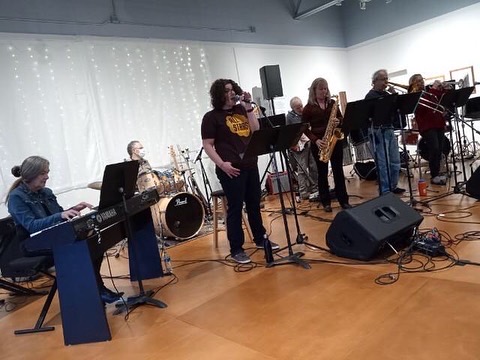Once again the earth has completed a trip around the sun and it is the holidays – the big December holidays – the get the whole family together and call in the friends and pull out the best china and the best gifts holidays. She has been chained to the kitchen, barely escaping to go serve somewhere else when someone calls, “I need a ride,” “I need a walk,” “I need a helping hand.” Chained, I say, but not a slave. She has been baking cookies and tamales and eggrolls and savory chicken soup and more cookies. As fast as she bakes and makes them she gives them away. There is the meal at church before the Christmas Eve service. There is a single friend who won’t be traveling home to family. There is a gracefully aging mother and an aged grandfather who eat freely and gratefully from her culinary concoctions. She reaches out and shares with those in need – and with those who have it all together and have no felt or expressed need. There is the friend who has no family and has been alone so long they are inured, and the friend who has everything one can achieve in life except a family. Food is such an assuager of loneliness, such a comfort to melancholy.
She cooks, she bakes, she does the endless clean up and dish washing. She delivers and spends time and listens. This is the routine I know from my childhood. These are the activities I watched my mother perform – the routines it was expected I perform as well. Yet they were grueling; the cooking, the clean-up. My mother was constantly fatigued. But one must, one must serve. It is required. I said fie on the requirements some years ago and began to limit my activities to what I wanted to reach out and do, not to what I felt I should do, or what would make me look good.
This year I watched her in the weeks before the holidays. I watched her bake. I watched her cook. I watched her spend an enormous amount of time and effort in the kitchen and in service to others. She smiled. There was joy on her face, not the fatigued misery of slavery. And I commented, “I am thinking service must be your primary love language.” “No,” she said, “not service.” I raised my eyebrows in surprise. “But you are so good at it! And you do it with enjoyment, not like a drudgery.” “My primary love language,” she said, “is gifts.” “The tamales, the green chili chicken, the cookies, the eggrolls; these are the gifts I have to give.”
This revelation comes to me as a tremendous relief. I want to love and be loved in return but sometimes I am confused. Typically, humans give and receive best in our primary love language. I have found it a challenge when someone’s primary love language is service. I serve only as duty so I have frugal means of reciprocating without smothering. Anyway, the server serves so well the bases are covered; there is nothing to do in return. But gifts? I understand the love language of gifts. And I also understand words of affirmation. It was a good Christmas Eve, it was a good Christmas, it was a good Hannukah. Friends, you did well!

